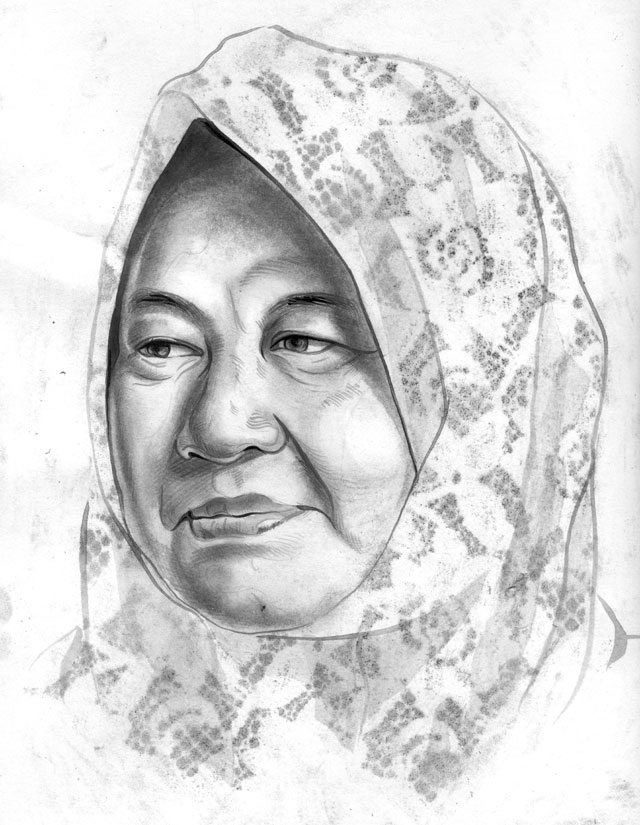Having moved up the ranks of local government, Surabaya’s mayor has turned heads
with her no-nonsense style
By Daniel Besant.
If non-Indonesians were asked to name three things associated with the country, Jakarta, Bali and Komodo dragons might be the first words to pop into their heads. The country’s second city of Surabaya probably wouldn’t even feature.
For Indonesians, however, the city has a special place in the national psyche. It is the ‘City of Heroes’ where, in 1945, Indonesian nationalists successfully fought off British-led forces, an event that served to galvanise the populace and set the country on the path to independence.

Illustration: Victor Blanco
With its ‘second city’ status and familiar urban problems of failing infrastructure and a swelling population, the East Javan port city has stayed mostly off the radar, perhaps needing a hero to put it back in the spotlight.
That hero may be Tri Rismaharini, the country’s first elected female mayor. Since taking office in 2010, she has done much to put the city back on the map.
The port is being renovated, parks and open spaces are being spruced up, drainage schemes have been unclogged and she has initiated free health and education programmes for the poor.
“I want no traffic jams and no floods in my city,” she told the Jakarta Post. “I’m focusing on turning Surabaya into a city of trade and services.”
For many, the mayor represents the ‘new’ Indonesia – free of corruption, democratic, media savvy and popular. In public, the 52-year-old, known as Risma, is careful to project a conservative, non-confrontational image with her business suits and muted headscarves.
However, she has not been shy in tackling difficult issues, such as firing 40% of the city’s officials for being corrupt and reporting the city’s zoo for mismanagement. She won praise for defeating a government plan to build a toll road through the city and for introducing plans for a monorail and tram system.
“A city is a home for its inhabitants. You should treat it like a house – you must clean it and make it beautiful and comfortable,” she told Forbes Indonesia.
During her term, due to end in 2015, she has made numerous enemies and even received death threats, although she remains unfazed. “I believe my life and death belong to God,” she said in the Forbes interview.
Having tackled a number of thorny issues, her last project in this tenure may well prove the most difficult: She aims to end prostitution in the city.
By closing down brothels in an area known as ‘Dolly’, and its neighbouring district of Jarak, she hopes that she will succeed where previous mayors have tried and failed.
In fact, she has pledged to end prostitution in these areas by the end of next month. “In June, before the fasting month, we can ensure that Dolly will be closed,” she told journalists.
Rather than steam in and unceremoniously evict the sex workers, she has set up a skills training programme and grants for them. The brothel owners will face the law, however. “As for the pimps, they are the responsibility of the provincial government,” she told journalists.
Much may ride on the success or failure of her latest project. A positive conclusion to her drive could serve any further political ambitions well. For now though, she seems happy enough to continue serving Surabaya.
“If I thought about winning and losing, I would have left this job a long time ago,” she told Tempo magazine. “I worry about my accountability to the people. I never asked to be mayor, never prayed to be one.”

